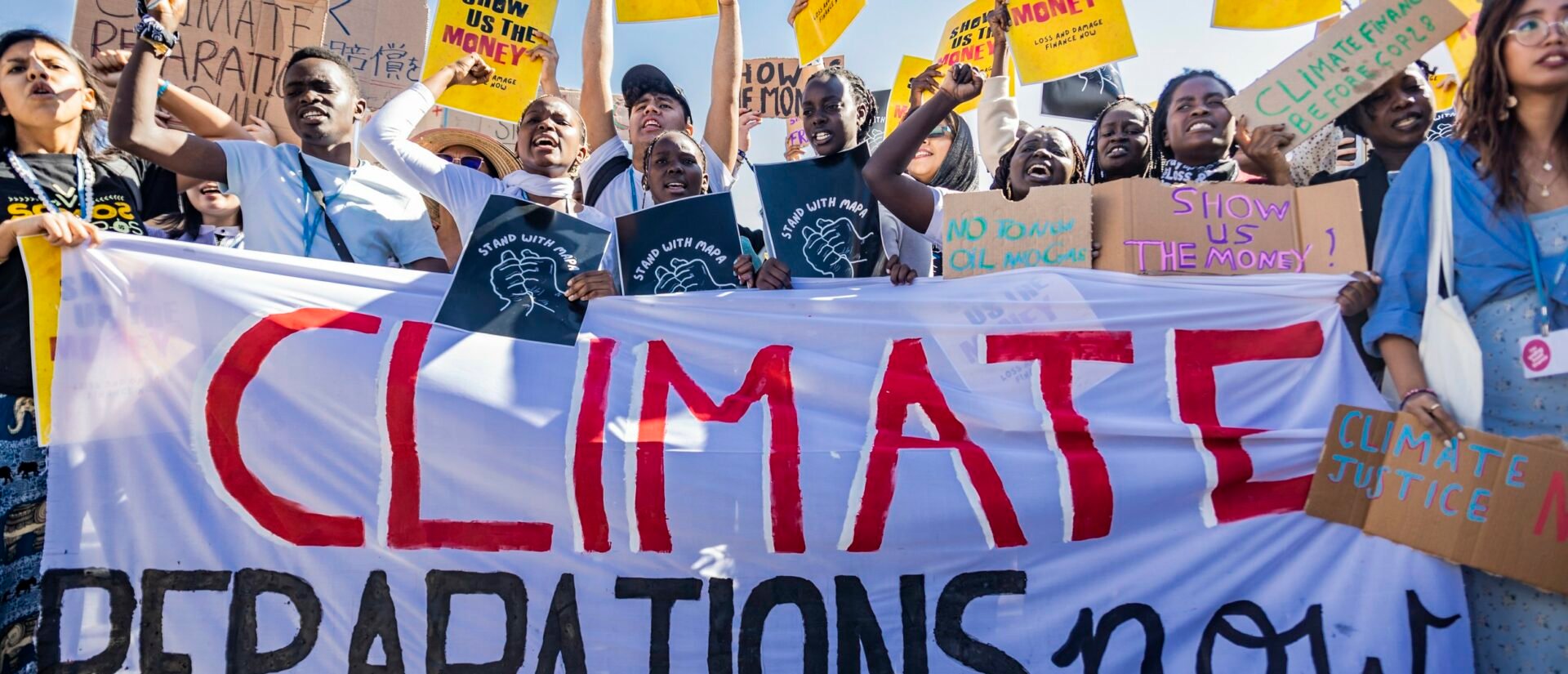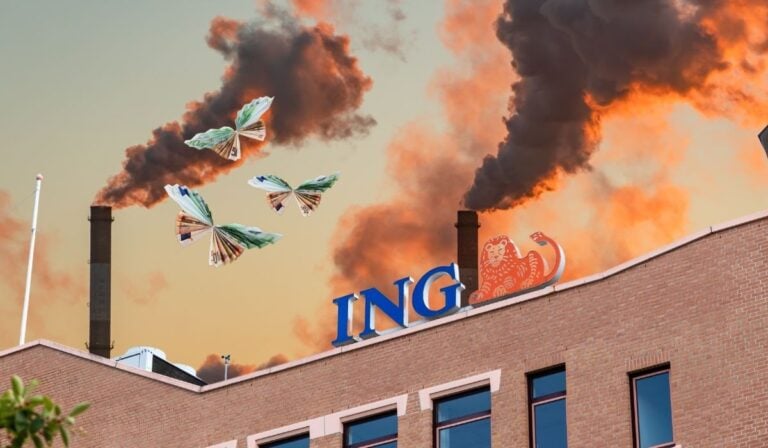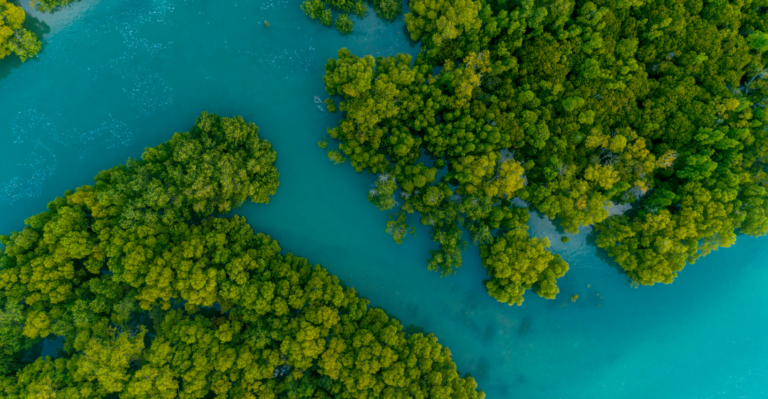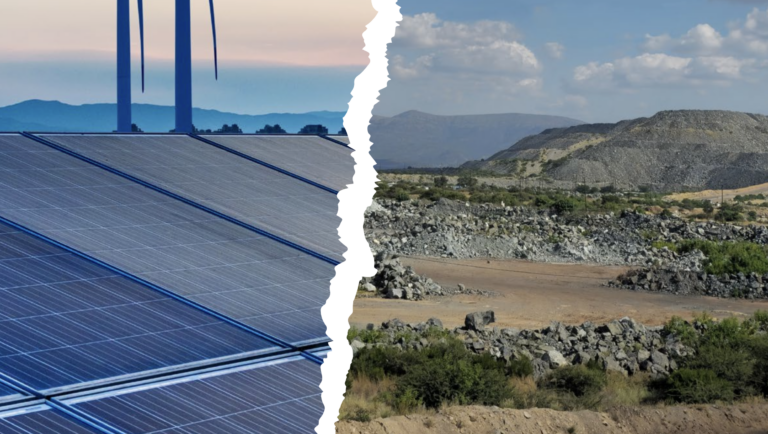
Reclaiming wealth for climate, reparations and justice
In November 2024, Global South nations reacted with justified anger when wealthy countries offered just $300 billion in annual financing(opens in new window) to support their climate response needs. Given how far $300 billion is from the minimum $1 trillion needed a year(opens in new window) by 2030, the reaction should surprise no one. Not to mention the fact that the climate crisis has been almost entirely driven by economic activity in, or for the benefit of, the Global North.
Rich country representatives(opens in new window) , however, felt the deal was a good one and the most they could offer. The disconnect is stark and multi-layered.
For Global North politicians and bureaucrats, offering more would cause problems with domestic constituencies. Many people in the world’s most affluent countries believe there is a severe lack of public funds – resulting from a constant barrage of messaging about funding shortfalls for health care, education, and social services, coupled with the recent cost-of-living crisis(opens in new window) in many countries.
Funding for climate action in the Global South, let alone reparations for historical injustices such as colonialism, sounds like delusion when the local childcare centre is closing due to government spending cuts, and millions of people across Europe and the US face a housing crisis(opens in new window) , rising homelessness(opens in new window) and use of food banks(opens in new window) . Where are the funds for the global public priorities of climate response and vital public services? The answer is hiding in plain sight.
The scarcity fallacy
The challenge we face is not – at least not primarily – one of insufficient resources to meet the needs. As many economists(opens in new window) and activists(opens in new window) have made clear, it is a matter of who controls resources and choices about how they are used.
Global wealth measured in monetary terms stands at over $450 trillion(opens in new window) , but most of it is held by a tiny minority of people. As Oxfam’s research on inequality has shown, the richest 1%(opens in new window) have more wealth than the bottom 95% of the world’s population put together. The three richest people in the world(opens in new window) – Elon Musk, Jeff Bezos, and Mark Zuckerberg – are worth over $900 billion. By contrast, the five poorest countries(opens in new window) in the world have a combined GDP of $109 billion.
The wealth of the richest individuals is growing, and with it, their political power. The ultra-rich leverage this power to create conditions for the further expansion of their wealth, particularly through the use and abuse of the tax system. This, in turn, deepens the problems we face globally while further siphoning off the resources needed to address them.
Multinational companies continue to use aggressive tax planning to avoid taxes, denying countries – particularly in the Global South – billions of dollars in revenues(opens in new window) that could be used to fund climate action and public services. A 2023 analysis by the Tax Justice Network found that the world could lose $4.8 trillion to tax havens over the next decade(opens in new window) .
While companies avoid and evade billions in tax, governments also use the tax system to subsidise multinational corporations. A 2024 study estimated that the Netherlands was providing €37.5 billion per year in fossil fuel subsidies, with much of it consisting of tax benefits to big industries such as aviation and shipping.
Large companies and billionaires have other means of extracting wealth from society. Indeed, the toolkit for wealth extraction and accumulation has expanded. While money has always been able to make more money, the extent to which this can happen has intensified dramatically with strategies such as financialisation and the growth of monopoly power. Wealth can increasingly be taken, not earned, enabled by global financial rules that favour the ultra-wealthy.
Research by Oil Change International (opens in new window) shows that rich countries could generate $5 trillion a year by ending fossil fuel handouts, making big polluters pay, and changing unfair global financial rules.
Manipulating scarcity narratives for private gain
The scarcity mentality has been weaponised and manipulated by divisive politicians and Big Business. National debt and the need for cuts to public spending have dominated elections in the North. The Netherlands’ housing crisis(opens in new window) was a pivotal issue in the 2023 elections that saw the far-right Party for Freedom make substantial gains. In the UK, one of the first messages of the newly elected Labour Party was handwringing about a £22 billion(opens in new window) ($27 billion) “black hole” in the public finances and the need for cuts to public spending.
Deepening the sense of insecurity and fear within populations, this message of scarcity – which is a combination of illusion and manufactured reality – is used by the far-right to demonize ‘other’ groups. Cuts to social services make people fear competition for access to these resources – fertile ground for far-right propaganda on migrants and refugees.
Multinational corporations have also leveraged the ‘lack of public funds’ narrative to create new opportunities for their enrichment. Attached to almost all political rhetoric on the shortage of public money is a ‘solution’ – wooing private sector investment. If funds for social services or green transition are scarce, the private sector is needed and must be courted.
The assumption that private sector involvement is vital to address public priorities frequently appears to ignore the basic mechanics of shareholder capitalism(opens in new window) . While businesses can provide goods and services useful to society without exploitation, this is not the norm. Society has long subsidised business, absorbing so-called ‘externalities’ (the costs the public absorbs on behalf of businesses, such as impacts of air pollution or plastic in the ocean or our food). Meanwhile, the ingrained belief that we need their investment has allowed companies to access large amounts of public money as co-finance or to ‘de-risk’ their investment and has driven a trend in some sectors of converting public funding into private profits.
COVID-19 vaccines and medicines are a clear example. Just four pharma multinationals made $90 billion in profits in 2021 and 2022. Companies made these extraordinary gains thanks in large part to decades of research funded by public investment, billions in grants for development and production, and tens of billions in advanced purchase agreements – all paid for by public money. Yet most of the profits were pocketed by the companies or went to private shareholders. The public purse was not reimbursed. Big Pharma could have made a modest profit and globally available vaccines. What it actually made was a massive profit and selectively available vaccines.
In the Global South, the need for private investment is manipulated even more insidiously. For decades, ‘developing’ countries have been told by Northern governments and Northern-controlled neoliberal institutions like the International Monetary Fund and World Bank that to prosper, they must attract foreign investment. However, this neocolonial agenda was never about letting the South prosper but about enabling actors from the Global North to access and extract wealth on favourable terms. In service of “attracting foreign investment”, countries across the Global South have been persuaded or forced to eliminate regulations that protect the public and the environment, sell off national wealth at bargain basement prices, give massive tax breaks to foreign companies, and use public funds or loan-backed guarantees to reassure multinational companies that they will make a profit. The result has been a debt crisis and a massive shift of wealth from the South to the North(opens in new window) .
The argument that we need the private sector because we lack public resources ignores the fact that part of the reason that we lack public resources is a result of the way the private sector acts. It is big multinationals and their shareholders – the 1% – who are siphoning the wealth out of the system at increasing rates. Contrast the $300 billion offered by wealthy nations (much of it in the form of loans or repurposed aid) with the fact that the top 1% of publicly-listed companies paid out five times as much – $1,559 billion – to shareholders in 2023.
Expropriation – we want our money back!
The situation is clearly unsustainable. The only solution is to take the wealth back. The 1% has accumulated this wealth by unjust means: corporate empires built on the foundations of colonialism and slavery expanded through corruption, tax evasion or avoidance, and the aggressive use of neocolonial economic structures that favour Global North multinationals and investors.
Governments can expropriate such wealth in the public interest and do so lawfully. There are well-established tools with which we can begin. For example, a wealth tax(opens in new window) has been widely promoted. Debt relief, ending fossil fuel subsidies, and other measures can be combined with a wealth tax to ensure redistribution. We also need to consider more radical ideas, such as using laws on proceeds of crime, pillage, and concepts of unjust enrichment to appropriate resources which have been “legally” plundered, particularly land and mineral wealth in the Global South.
Of course, making this happen will not be easy, particularly in the current political climate. Even if a government was willing to consider it, business and capital have a huge influence on policy. They can resort to the legal blackmail of divesting, moving to a more malleable jurisdiction, and taking the associated jobs (and a government’s election prospects) with them. Joint action by governments can limit the impact of such threats. However, we are moving in the opposite direction globally. Multilateralism – often more wishful thinking than reality and certainly based on Global North dominance – is over.
The pathway to rebalancing global wealth has never been more challenging. But it will not get easier as the concentration of wealth and power grows annually. Either we accept the situation, or we address it. A third option is for a chaotic and likely brutal realignment to take place. The French economist Thomas Piketty, who has long advocated a wealth tax, has noted how the previous two world wars acted to disrupt the concentration of capital and has observed(opens in new window) , “Sometimes it takes major shocks, including revolution and war”.
The hoarding of the resources needed to enable justice is morally untenable. Taking those resources back seems practically impossible. But it is not. We need to get over the mental hurdle to the idea of expropriation of unjust and unjustifiable wealth. It is a failure of imagination more than an issue of practicality.
The reparations framework: changing the way we view transfers of wealth
A defining feature of rebalancing wealth to address global issues of climate and justice must be that we work within a framework of reparations. Without this, the structural inequality of our world will never be rectified.
Take the $300 billion in climate finance proposed by the Global North at COP. In and of itself, it is paltry enough, but if we contrast it with the climate reparations owed, it becomes even more offensive. Research by Andrew Fanning and Jason Hickel(opens in new window) estimates the Global North owes $192 trillion in climate reparations for their CO2 emissions. Another recent assessment(opens in new window) calculates that the world’s 21 largest fossil fuel companies, such as Shell, Total and ExxonMobil, owe a total of $5.4 trillion in climate reparations.
The wealthy North – particularly countries and actors enriched by colonialism and neocolonialism – owe many countries in the Global South a vast debt. There is an extensive body of work and data on reparations(opens in new window) for climate impacts but also, and importantly, for historical atrocities. The figures are large, as they should be considering how much wealth was stolen and how much harm was done. The Indian economist Utsa Patnaik calculated the UK plundered $45 trillion from India between 1765 and 1938(opens in new window) . A ground-breaking 2023 report(opens in new window) co-authored by UN judge Patrick Robinson estimates the total reparations owed for the transatlantic slave trade at between $100 and $131 trillion. It found the Netherlands owes $5 trillion in reparations, of which $2.8 trillion is due to Suriname.
To truly address and redress injustice, which includes but is not limited to climate injustice, wealth must be transferred in ways that help end structural inequality. In their 2024 report, Debt Cancellation is Not Enough(opens in new window) , academics Kennedy Manduna and Liliane Umubyeyi argue for radical reform of the international financial architecture as an element of reparations. Without such action, any rebalancing of wealth is likely to be insufficient and temporary.
SOMO’s series: Reclaim the Wealth
During 2025, SOMO will explore radical ideas around wealth redistribution using data and building on the work of allies globally. We will publish a series of posts showing where the money is, who has it, and – critically – how we can reclaim and redistribute it to pay for what the vast majority of the people on earth need. We are unapologetically setting out proposals that can be shrugged off as wildly unrealistic and geopolitically naïve. However, we are in good company; academics(opens in new window) and activists(opens in new window) globally are making similar propositions, and we are building on the work of incredible leaders on issues of inequality and reparations(opens in new window) , as well as growing momentum that is pushing the issue up the international agenda. The African Union has designed 2025 as the year of “Justice for Africans and People of African Descent Through Reparations(opens in new window) ”. Calls for climate reparations and not climate ‘finance”(opens in new window) are growing.
If the arc of history bends towards justice – and we believe it does – radical wealth redistribution must happen.
Related news
-
Digging deeper into ING’s climate ambition Published on:
 Rodrigo FernandezPosted in category:Publication
Rodrigo FernandezPosted in category:Publication Rodrigo Fernandez
Rodrigo Fernandez
-
 The Counter: strengthening the fight for climate justice around the worldPosted in category:Long read
The Counter: strengthening the fight for climate justice around the worldPosted in category:Long read Luis ScungioPublished on:
Luis ScungioPublished on: -
The hidden harm of green hydrogen Published on:
 Ilona HartliefPosted in category:Publication
Ilona HartliefPosted in category:Publication Ilona Hartlief
Ilona Hartlief


